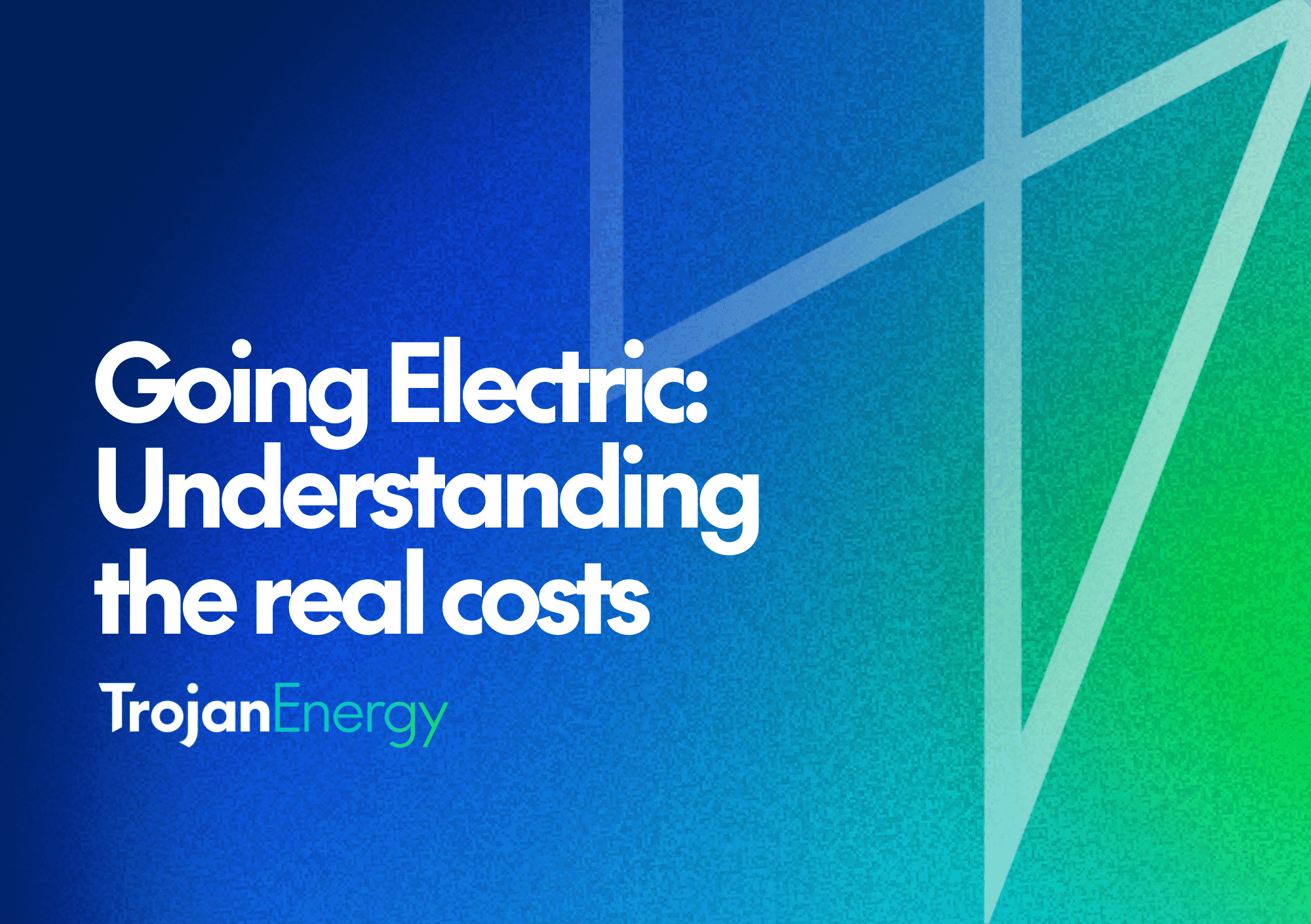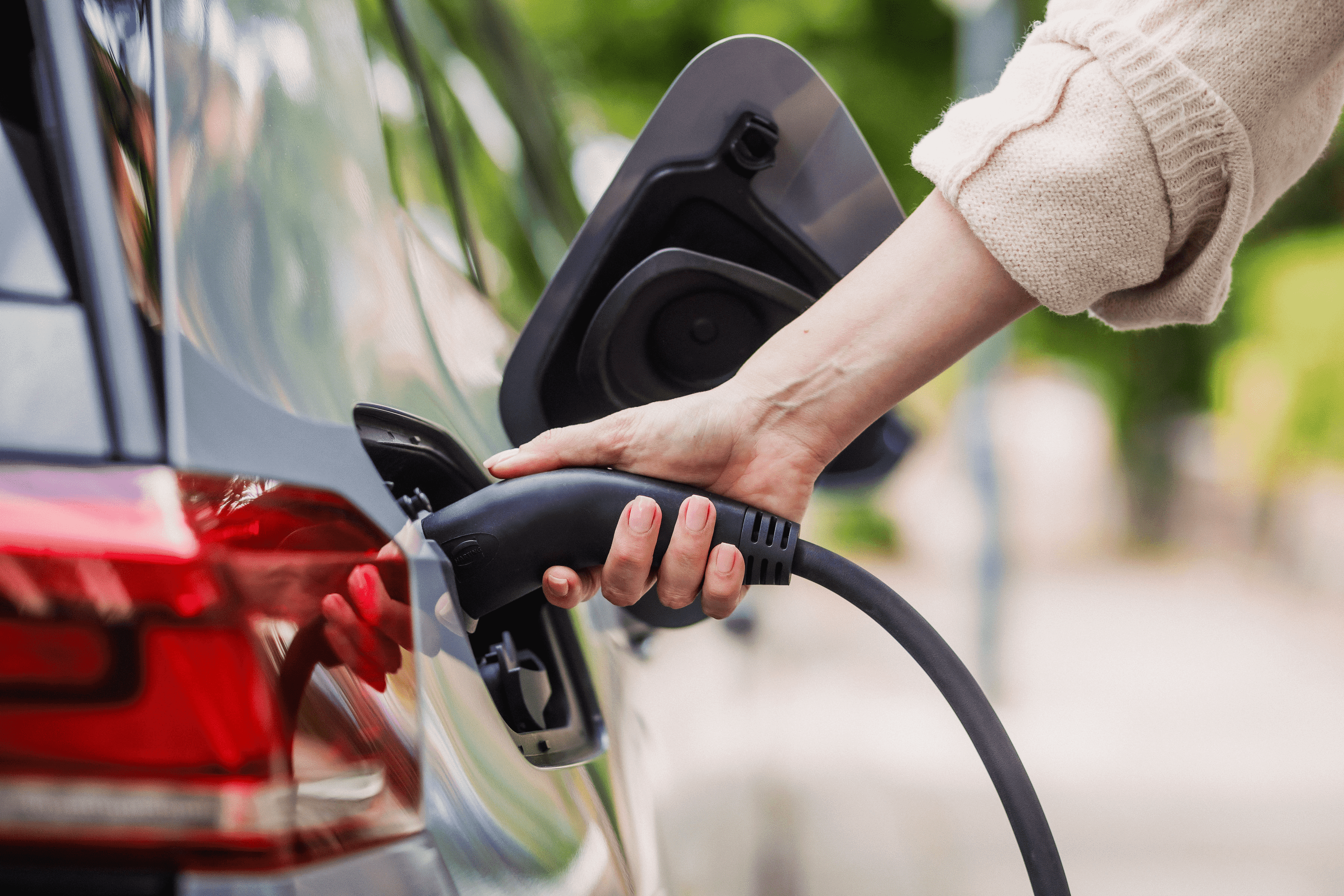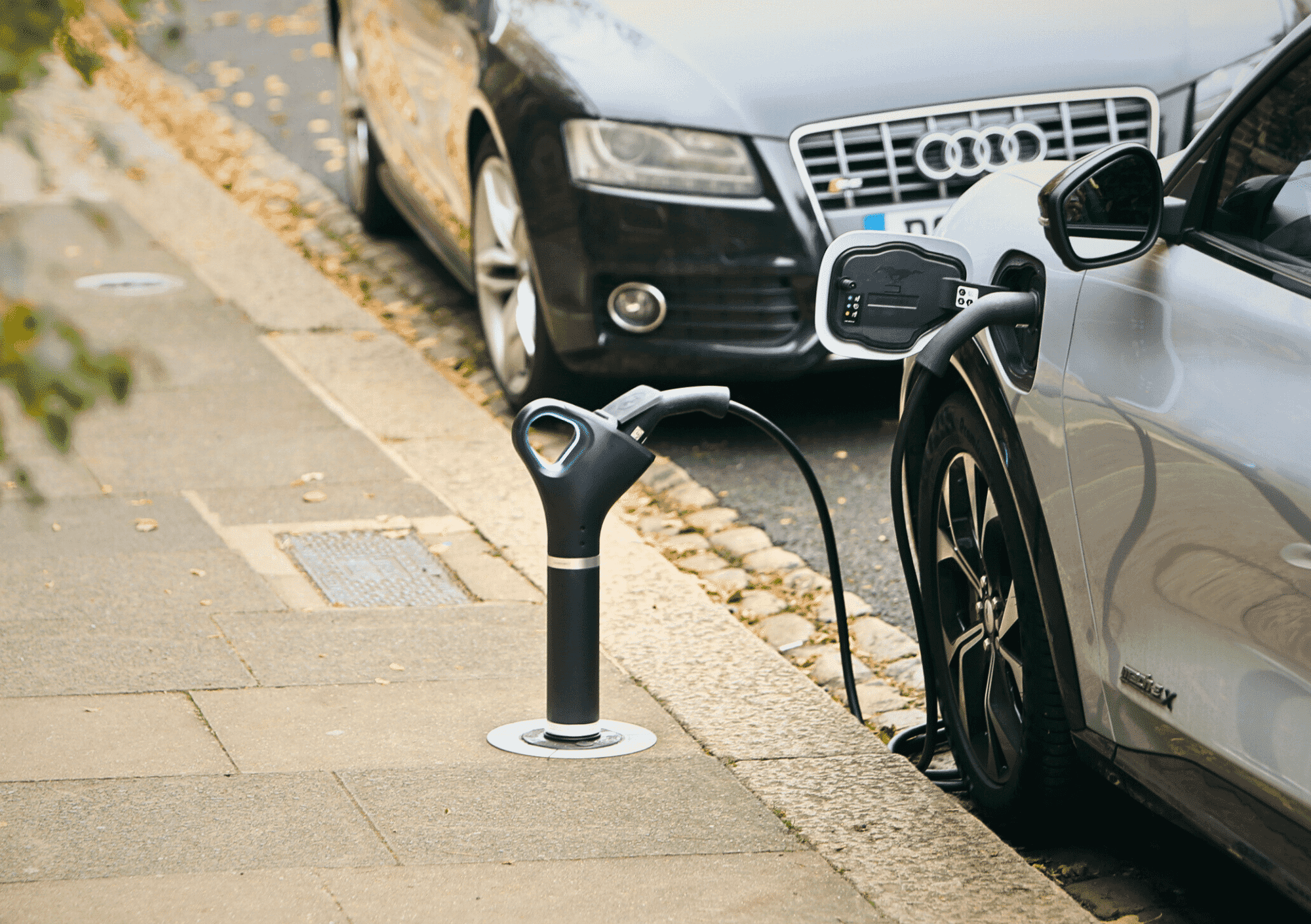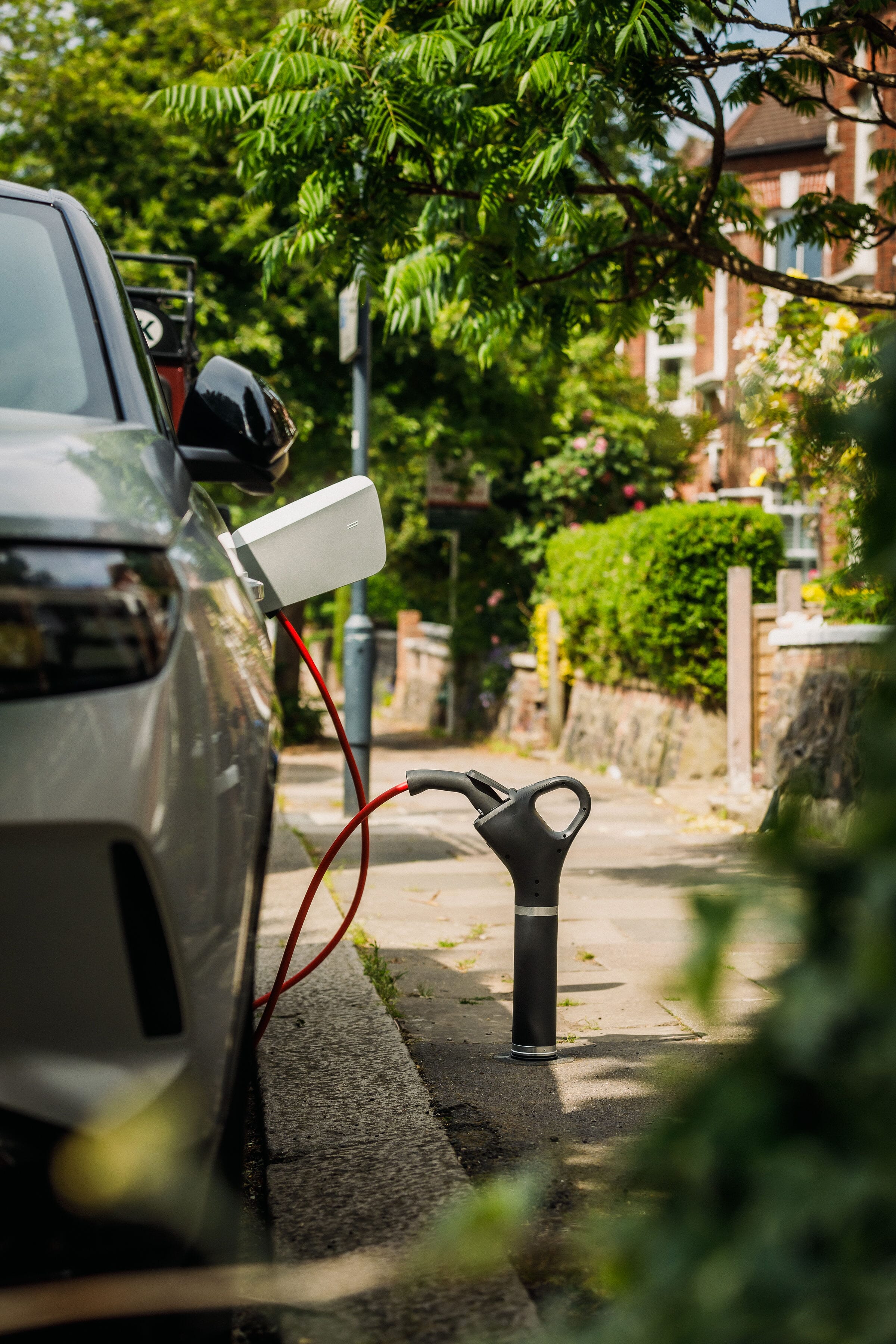6 minute Read
The Real Cost of Going Electric: Understanding EV charging cost benefits
First Published: (Last Updated: )

Key Takeaways:
– EVs are cheaper to run and maintain than petrol or diesel, especially with off-peak charging.
– Home or kerbside charging saves the most, even without a driveway, thanks to smart tariffs and Trojan Energy’s on-street chargers.
– Rapid public charging is convenient but costly; local charging is best for daily use.
– EVs retain value better than before and have a smaller environmental footprint.
– Affordable, stress-free charging is now accessible for everyone, right at your doorstep.
EVs are no longer the future; they’re the now. With more than 1.5 million fully electric vehicles already on UK roads, the shift to an all-electric future is well underway.
The environmental benefits of EVs are widely understood, but what about the financial advantages? As we now find ourselves in the middle of a cost of living crisis, finding affordable ways to travel has become more important than ever. That’s where EVs come in. From fuel savings to lower maintenance bills, the financial upsides of going electric could make a huge difference to your monthly outgoings.
Today, we break down the key EV charging cost benefits and explain why charging at home, or as close to home as possible, remains the most budget-friendly option.
EV vs petrol: what’s the cost difference in 2025?
The cost per mile of driving an EV is around 50-90% lower than petrol or diesel equivalents, based on current price assumptions and vehicle efficiency. According to Which?, the typical EV running costs in May 2025 are:
– Off-peak tariff for home charging: 2p per mile
– Standard rate for on-street charging: 9p per mile
Compare this with the average costs of non-electric cars per mile:
– Petrol: 13-18p per mile
– Diesel: 13-16p per mile
On top of fuel savings, EVs also benefit from lower maintenance costs, as they have fewer moving parts and don’t require oil changes. They do require regular servicing, but their services are around 18% cheaper than ICE vehicles.
Today’s EVs are now more efficient than ever, offering longer ranges on a single charge and better driving performance across various road conditions. This means you can spend less time worrying about where to charge and more time focusing on getting where you need to go.

Why home charging still wins
If you’re lucky enough to have a driveway, charging at home is the most affordable way to power your EV. Here’s why:
Installation grants
According to the RAC, it currently costs around £800-1200 to install a home EV charger. However, you may be eligible for a home EV charger grant of up to £350 through the government’s Electric Vehicle Homecharge Scheme, which takes a big chunk out of the initial setup cost.
Smart tariffs
Some energy providers, such as Octopus Energy, offer cheap EV tariffs when charging at night (if you have an Octopus EV charger). They have three EV tariffs available with rates as low as 7p/kWh, which helps to drastically reduce running costs.
Scheduled charging
Most smart home chargers come with scheduling features, which allows you to automatically charge your EV during off-peak hours (usually overnight) when electricity rates are at their lowest. That way, you’re saving money without having to even think about it.
Simplicity and convenience
Home EV charging easily fits into your everyday routine. There’s no need to plan lengthy detours or wait around at public charging points; simply plug in when you get home and wake up to a full battery every morning.
What if you can’t charge at home?
It is estimated that 9 million households in the UK don’t have access to a driveway, meaning they must seek alternative ways to charge. At Trojan Energy, we believe that everybody should have access to affordable EV charging solutions; regardless of whether or not they have a driveway. That’s why we created our innovative flat-and-flush charging system for people who park on the street.
Our on-street EV charging system is designed to work around your lifestyle, not the other way around. There’s no need to sign into complicated apps or seek out dedicated parking bays; simply plug and play using your personal adaptor to receive instant charge. You can enjoy 24/7 access to up to 22kW of charging right outside your home, and benefit from off-peak tariffs that drastically reduce your vehicle’s running costs.
While rapid public chargers offer a useful top-up option for longer trips, they do come at a premium compared to home or local kerbside charging. The good news is that for most daily journeys, rapid charging simply isn’t necessary. That’s why having access to local, affordable alternatives like our on-street chargers makes so much sense for routine use.
Discover more about how our EV charging system works.

Beyond short term savings: the bigger picture
Switching to an EV isn’t just cheaper in the short term; it can also help you save money in the long run. Here are some of the long term EV charging cost benefits:
Total cost of ownership
Although EVs do have a slightly higher upfront cost than petrol or diesel equivalents, the Total Cost of Ownership over 5-10 years is significantly lower, particularly if you consistently charge cheaply. Fleet and company car drivers can also see significant savings thanks to lower Benefit-in-Kind (BiK) tax rates on EVs, making them a cost-effective long term investment for both businesses and employees.
Resale value
More and more drivers are now switching to electric each year, which is changing the story on EV resale value. Historically, EVs depreciated faster than petrol cars, but EVs now retain around 40-45% of their original value after five years, which is good news if you decide to sell later down the line.
Environmental impact
EVs emit around 40g of CO₂ per km when charged via the grid, which is around one third less than petrol or diesel equivalents. And the more you charge using off-peak or green tariffs, the smaller that footprint becomes. Based on the UK’s energy mix, which is rapidly decarbonising, this figure is expected to fall even further as we move towards 100% renewable electricity.
EV charging cost myths, busted
Myth 1: EVs are just as expensive to run as petrol cars
Reality: Even on a standard tariff, EVs cost around 9p per mile, compared to 13–18p for petrol. For off-peak home or kerbside charging, this can drop to just 2–5p per mile.
Myth 2: You need a driveway to save money with an EV
Reality: Not true. Trojan Energy’s on-street chargers give you access to smart charging savings without the need for a driveway.
Myth 3: EVs are more expensive to maintain
Reality: EVs have fewer moving parts, no exhaust system, no oil changes, and less brake wear. On average, servicing costs are around 18% lower than ICE cars.
Myth 4: EVs lose value too fast
Reality: While early EVs depreciated quickly, today’s models retain up to 40–45% of their value after five years, which is similar to many ICE vehicles.
Myth 5: Charging an EV at home will send your electricity bill through the roof
Reality: With smart tariffs like Octopus Go, you can charge for as little as 7p/kWh during off-peak hours, adding ~£20/month for average drivers.

Cheaper EV charging starts at home (or your kerbside)
As an EV driver, choosing where to charge is just as important as what you drive.
If you’ve got access to a driveway, installing a home charger and using smart tariffs can help drastically reduce your EV’s running costs. But even if you don’t, that doesn’t mean you should have to fork out on costly public chargers.
Our mission is to make EV ownership easier for people without off-street parking. Our clutter-free pavement-level chargers help to bring affordable, reliable charging right to your kerbside, so you can still benefit from low-cost electricity and super-fast charging without having to leave your neighbourhood.
Are you ready to unlock affordable EV charging? Contact us today and get ready to change the way you charge.
